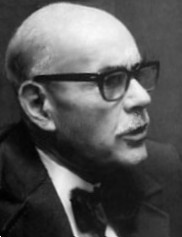A Quote by Ralph Waldo Emerson
In the Greek cities, it was reckoned profane, that any person should pretend a property in a work of art, which belonged to all who could behold it.
Related Quotes
Thirdly, the supreme power cannot take from any man any part of his property without his own consent: for the preservation of property being the end of government, and that for which men enter into society, it necessarily supposes and requires, that the people should have property, without which they must be supposed to lose that, by entering into society, which was the end for which they entered into it; too gross an absurdity for any man to own.
The art is more important than the artist. The work is more important than the person who does it. You must be prepared to sacrifice all the you could possibly have, be, or do; you must be willing to go all the way for your art. If it is a question between choosing between your life and a work of art -- any work of art -- your decision is made for you.
If history could prove and teach us anything, it would be the private ownership of the means of production as a necessary requisite of civilization and material well-being. All civilizations have up to now been based on private property. Only nations committed to the principle of private property have risen above penury and produced science, art, and literature. There is no experience to show that any other social system could provide mankind with any of the achievements of civilization.
For everybody has a natural right not only to defend his own person and property against aggressors, but also to go to the assistance and defence of everybody else, whose person or property is invaded. The natural right of each individual to defend his own person and property against an aggressor, and to go to the assistance and defence of every one else whose person or property is invaded, is a right without which men could not exist on earth.
In the middle of this it was good to have some moments in which whatever was left of you could sit in silence. When you could remember. When the evidence that had gathered could be sorted. And it was a difficulty if another person imagined these moments were their property. Your life got sliced from two sides like a supermarket salami until there was nothing left in the middle. You were the bits that had been given away right and left to others. Because they wanted the piece of you that belonged to them. Because they wanted more. Because they wanted passion. And you did not have it.
Greek is the embodiment of the fluent speech that runs or soars, the speech of a people which could not help giving winged feet toits god of art. Latin is the embodiment of the weighty and concentrated speech which is hammered and pressed and polished into the shape of its perfection, as the ethically minded Romans believed that the soul also should be wrought.
The scholar was not raised by the sacred thoughts amongst which he dwelt, but used them to selfish ends. He was a profane person,and became a showman, turning his gifts to marketable use, and not to his own sustenance and growth. It was found that the intellect could be independently developed, that is, in separation from the man, as any single organ can be invigorated, and the result was monstrous.
I never have been a musician; I'm not actually capable. Because I can't even pretend to acquire the gift, all of my first feelings about art are still attached to music. I look at it yearningly, I look at it wonderingly. I behold it from afar, as something unattainable, something outside of myself, from which I can take nourishment, but I can't domesticate and master.
The bourgeois thinkers of the eighteenth century thus turned Aristotle's formula on its head: satisfactions which the Greek philosopher had identified with leisure were now transposed to the sphere of work, while tasks lacking in any financial reward were drained of all significance and left to the haphazard attentions of decadent dilettantes. It now seemed as impossible that one could be happy and unproductive as it had once seemed unlikely that one could work and be human.









































